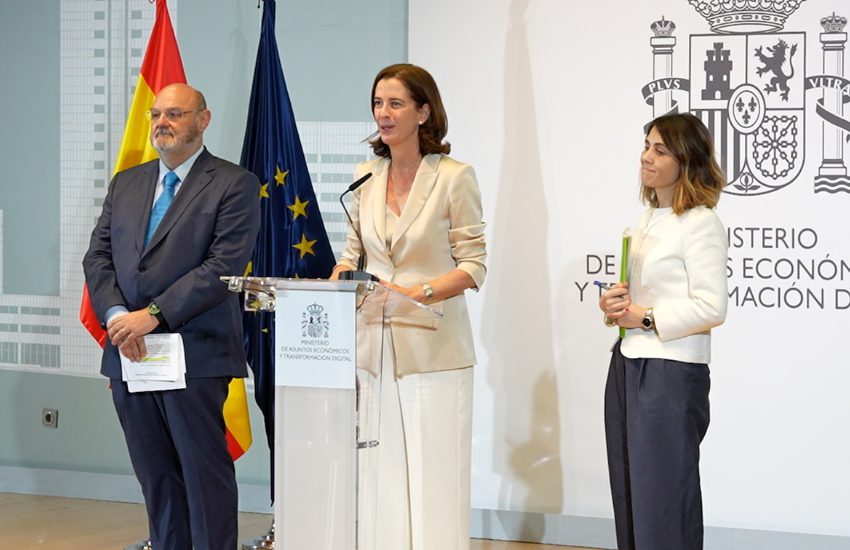AEB, CECA and Unacc have presented today at the Ministry of Economic Affairs and Digital Transformation the progress made in their commitment to support society
Noteworthy are the improvements in the personalised service provided to the elderly, with more than 6.3 million direct beneficiaries and 245,000 participants in training initiatives, and the expansion of financial inclusion in rural areas, with more than 400 municipalities having access to financial services
AEB, CECA and Unacc held a meeting today at the Ministry of Economic Affairs and Digital Transformation to follow-up on the different protocols that have been implemented over the last 18 months. They all pursue the same objective and reflect a clear mission for the sector: strengthen the social and sustainable commitment of the banking sector to help address the challenges we face as a society, such as the impact of digitalisation, depopulation and the effects of rising interest rates.
In attendance at the meeting was the Vice-President and Minister for Economic Affairs and Digital Transformation, Nadia Calviño; the Governor and Deputy Governor of the Bank of Spain, Pablo Hernández de Cos and Margarita Delgado, respectively; and associations representing consumers and the elderly.
The banking associations have detailed the efforts undertaken in rural areas according to the annual monitoring report: access to banking services has been made available in 433 municipalities, benefiting 162,641 people, who now have a face-to-face access point in their municipality. Thus, the population living in a municipality without an access point in Spain has fallen from 1.4% in 2021 to 1% in 2022.
Of the 243 municipalities with more than 500 inhabitants identified at the outset as having no access to cash, as of March, a solution has been planned, implemented or is underway in 139 of them. This represents a reduction of 57% of municipalities, with 124,000 people having benefited from the measures implemented.
The sector is also making progress in the technical work for the creation of a white label ATM for rural Spain, in case it is necessary to complement the other measures already adopted. This innovative measure is the result of the joint efforts undertaken by banks and their commitment to offer financial services throughout the entire country.
On the other hand, the annual monitoring report on the personalised service provided to the elderly reflects the outcome of the specific measures implemented by the banking sector:
- 6.3 million people over 65 years of age have benefited from the extended teller service hours in branches, from 9 a.m. to 2 p.m., which represents 81% of the total number of branches.
- 2.4 million calls have been serviced through a personal account manager.
- 70,000 bank employees have received specific training to offer customer service tailored to the needs of the elderly.
- 91% of ATMs and more than 80% of websites have been adapted with simplified views and menus.
Other initiatives have been undertaken in this area, such as a satisfaction survey in which more than 70% of the elderly were satisfied with the banking service received through the different channels.
The dissemination of measures geared towards the elderly has also been reinforced with the distribution of information leaflets in bank branches and through digital channels.
The banking sector has also reaffirmed its commitment to provide financial education and digital skills training, with new initiatives. The goal is to facilitate access to knowledge and skills that help all individuals make more informed financial decisions, operate in all available environments and channels, and access public and private services securely.
The associations also pointed out the value of the Code of Good Practice agreed in 2022 to alleviate the mortgage burden of vulnerable families or those at risk of vulnerability in the face of rising official interest rates and defended its preventive nature.









